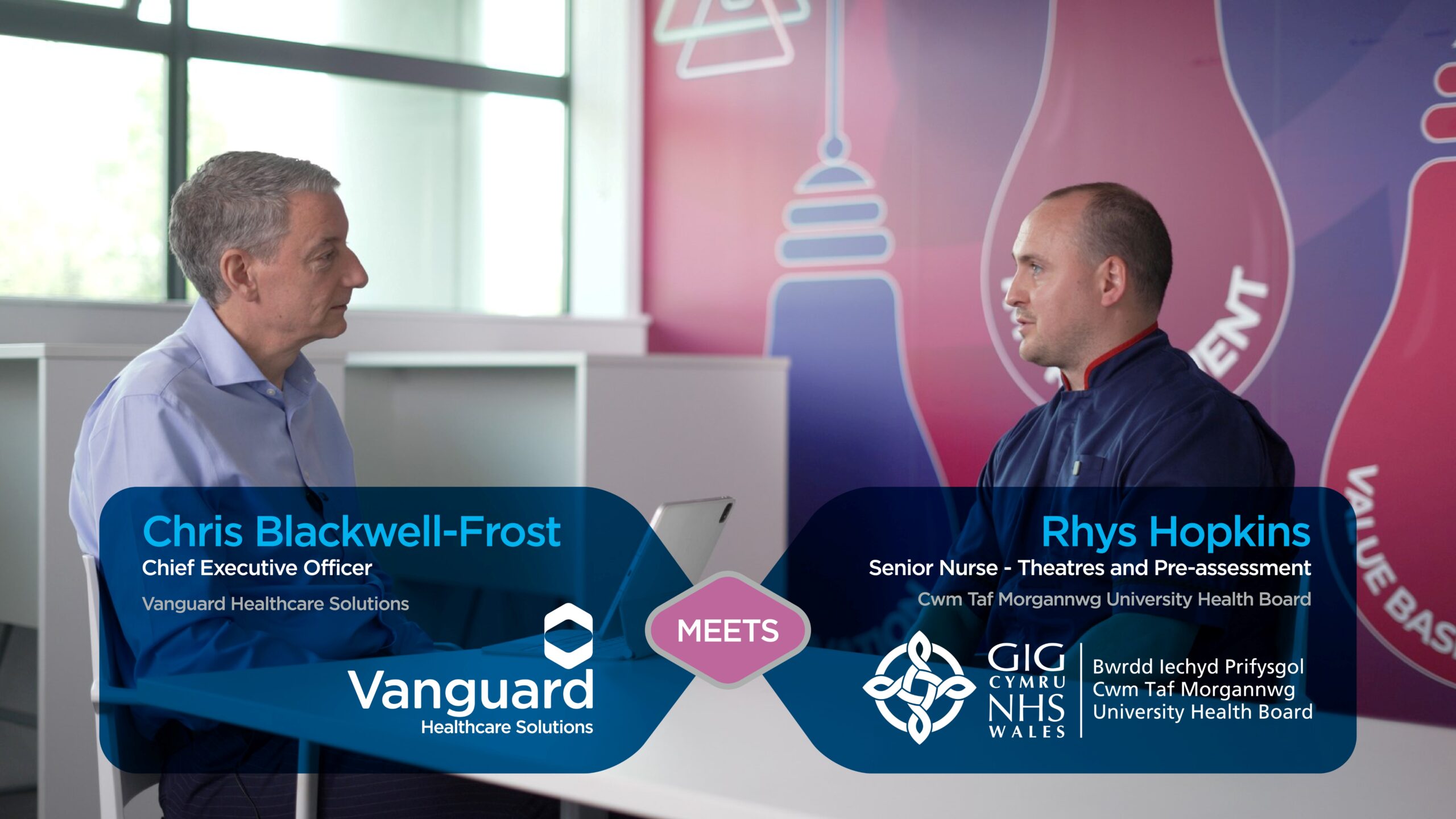It looks like you are in the United States
We have a different site (www.q-bital.com) which better suits your location
NHS England’s Medical Director has laid down the gauntlet for health providers to achieve much better cancer outcomes. A target has been set of 99 per cent of patients waiting fewer than six weeks between referral for diagnostic testing and the test taking place.
As a recent Public Policy Projects (PPP) report: Looking within: the state of endoscopy in England, has revealed, these admirable aims will not be achievable unless the NHS’s capacity for endoscopy provision is placed on a surer footing. Unfortunately, this is currently not the case for hospital trusts across England. The report found that 41 per cent of trusts are operating with endoscopy suites approaching, or exceeding, the manufacturer’s recommended ten-year lifespan.
The relevance of this discussion has been further compounded by Professor Sir Mike Richard’s, former National Cancer Director for NHS England, recent report entitled: The independent review of adult screening programmes in England. Clearly,having the capacity to draw upon multiple options in order to drive uptake of screening programmes has never been more pertinent.
PPP’s report, published in partnership with Vanguard Healthcare Solutions, addressed this topic at a lively roundtable event at this year’s
IHEEM
Healthcare Estates Conference. In attendance were several estates and facilities managers, along with authorising engineers and decontamination and endoscopy clinical leads from NHS trusts across the UK. The discussion provided an engaging forum where these senior thought leaders spoke about why deterioration of endoscopy facilities has been allowed to manifest itself so severely across the NHS.

According to PPP’s report, 25 per cent of decontamination suites currently in use across England are over 10 years old, and 15 per cent of hospitals have not upgraded their suites in the past eight years. In the context of skyrocketing demand for endoscopy provision, there is clearly a need for greater scrutiny of exactly how we define the lifecycle of an endoscopy suite. This point proved to be a major driver of discussion.
“Demand for endoscopy services is only going in one direction,” said David Cole, CEO of Vanguard Healthcare Solutions. As chair of the discussion, David was keen to probe the public sector participants on the topic of endoscopy lifecycles. David posed the question: “Considering this inevitable increase in activity, how is the current life expectancy of endoscopy equipment being measured?”
The consensus for the meeting was that endoscopy unit lifecycles are based on a time period for which equipment is in active service rather than according to the number of operational cycles. Considering rising demand, simply measuring lifecycles in terms of years is no longer sufficient to ensure equipment can achieve the minimum decontamination standards on a consistent day-in-day-out basis.
Furthermore, measuring endoscopy lifecycles in active years fails to consider escalated maintenance costs, which are an inevitable consequence of increasing use. Built-in capacity for maintenance is a luxury that few trusts can nowadays afford and therefore, an impact upon operational activity levels is inevitable.
“The key thing is how we augment existing estate capacity.” Alex Chilvers, Managing Director at 18 Week Support “Of course, increasing use is going to have a detrimental effect upon the longevity of the equipment,” said Alex Chilvers, Managing Director at 18 Week Support, an organisation dedicated to helping trusts manage referral to treatment pathways and targets. Alex insisted that, in the context of an absence in capital funding for long-term endoscopy suite upgrades, “the key thing is how we augment existing estate capacity.”
One can look to other industries for examples of how to monitor the longevity of endoscopy equipment. Indeed, this is a point that Rosemary Jenssen, Healthcare Architect, was eager to make. “Cars have intelligent servicing intervals based on their activity, whilst endoscopy units seem to be monitored based on the number of years they have been active,” said Rosemary. “If our cycle monitoring were based on more direct use of equipment, then you would have much better forward planning opportunities to provide information on when to replace the overused equipment.”
When equipment begins to fail, it is too late and so, as Rosemary astutely noted, the NHS must look to gear its cycle monitoring to a more activity-centred approach. Rosemary was not the only one to highlight this. Cliff Howell, former Director and Operational Lead for NHS Estates and Facilities, Efficiency and Productivity Division at NHS Improvement, pointed out in blunt terms: “We must change to an evidence-based approach rather than simply reading what the repair manual says.”
If facilities managers from across NHS trusts acknowledge limitations in how the critical infrastructure within endoscopy suite lifespans are monitored, it is important to know what prompts a trust to replace, or at least augment, its existing facilities.
Quick answers were not forthcoming, as facilities managers immediately cited wider concerns around here-and-now thinking, which often prevents the NHS from making desperately needed long-term decisions regarding its estate. One delegate went as far as to say that the NHS suffers from a “short-term planning syndrome” when it comes to estate utilisation.
Ultimately, while trusts want to centre decisions around updating endoscopy equipment, facilities managers are usually restricted by the same issue – cost. The issue of capital spending and its detrimental effect on patient care has certainly been thrust to the forefront of discussions on improving healthcare. Financial restrictions still dictate much of the day-to-day decision-making for estates and facilities managers. For too many, it is still all about the money.
What are the triggers for a trust to review and potentially upgrade its endoscopy facilities? What is the corporate versus the individual risk? What measures can a trust take to drive awareness of outdated endoscopy equipment? These are the types of questions that facilities managers across the NHS should be considering, but time and time again their decisions are based upon too many competing priorities.

In order to foster a more proactive environment in which decisions are based on patient safety, it is essential that the flow of capital directly to endoscopy service facilities occurs. Current failures to ensure financial support for endoscopy reveal a disconnect between a desire at a national policy level to address cancer screening targets, and the equipment that can so often prove vital to meeting those targets.
“In a similar way to LINAC and imaging equipment replacement, there are often national level initiatives and funding made available to replace old and obsolete equipment,” said Cliff, who suggested this policy should be extended to include endoscopy services equipment.
Despite a less than clear capital spending picture, there are options available to trusts to ensure they maintain their endoscopy facilities and therefore meet cancer screening targets. “Backlog estates and equipment replacement in the NHS is at an all-time high, while capital availability remains restricted. Backlog levels, therefore, are still going to increase,” said Cliff. “Perhaps the NHS should consider ringfencing lifecycle funding for future developments, in order to prevent a repeat of the past.”
Augmenting existing estate capacity will play an ever more important role. Professor Richards’ report for NHS England cited mobile units as potentially alleviating strain upon endoscopy services. This has the benefit of overcoming the objections cited by clinicians about the use of offsite facilities as a threat to joined up healthcare provision.
For ambitious cancer targets to be met, change will need to come from somewhere. The PPP report revealed that 87 per cent of hospitals that have reported ageing decontamination suites (i.e. those that have not seen refurbishment in the past eight years) are also part of trusts that failed to meet six week waiting target for diagnostic testing.
“The UK has some of the highest standards for decontamination and sterilisation of anywhere in the world.” David Cole , CEO of Vanguard Healthcare Solutions
Endoscopy units across the NHS have come a long way from the “broom cupboards” once used (as one delegate described them) to the large, sophisticated, centralised units but, as David Cole pointed out, this must not excuse complacency. “The UK has some of the highest standards for decontamination and sterilisation of anywhere in the world,” said David as he wrapped up what was an engaging and lively discussion, “but we cannot allow ourselves to go backwords.”
While we await national policymakers to direct badly needed capital funding to the frontline, acute trusts must ensure endoscopy service facilities are not left behind and that patients do not begin to feel negative effects.



Vanguard Healthcare Solutions
Unit 1144 Regent Court, The Square, Gloucester Business Park, Gloucester, GL3 4AD

We have a different site (www.q-bital.com) which better suits your location